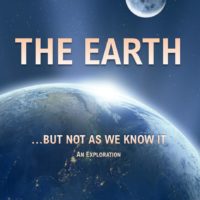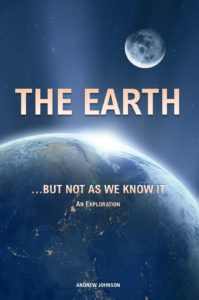![]()
Most of us who have an interest in the planet we live on have seen diagrams showing the Earth’s interior. We are told it is very hot and made of iron. Is this really true? How far have we actually “dug down” to find this “hot ball of iron”? Where did our enormous oceans come from and have they always been here? And anyway, how did our planet form? Have you ever looked at a map and noticed how the west coast of Africa seems to fit against the east coast of South America – as if they were pieces of some enormous continental jigsaw? Has our planet always been the same size, or has it grown since it formed? Why do some people think we might live on a “hollow earth?” And how was it possible for the dinosaurs to grow to such enormous size, millions of years ago? How are all these questions even related to each other? In this book we will try to find some answers to these questions by looking at the research of Dr James Maxlow, Jan Lamprecht, Stephen Hurrell, Peter Woodhead, Wallace Thornhill, Fredrik Nygaard and Neal Adams. We will look at some of the most compelling scientific and geological evidence which shows that the Earth is expanding. We will embark on a journey through time and inner space, learn a little about gravity and the “Electric Universe” and attempt to find the truth about what may be at the centre of our planet, and understand why it is expanding.
- Paperback: 173 pages
- Publisher: Independently published (14 Nov. 2019)
- Language: English
- ISBN-10: 1702017575
- ISBN-13: 978-1702017572
- Product Dimensions: 15.2 x 1.1 x 22.9 cm
- See below for Table of Contents
Ordering
| Source | Paperback | PDF / eBook | COLOUR EDITION |
|
CheckTheEvidence Website
|
Free PDF |
 |
|
| Amazon
|
 |
 |
 |
| Lulu |  |
 |
|
| Barns and Noble |  |
|
 |
| Rakuten Kobo |
|

|
Table of Contents
Preface and Introduction 3
Part 1 5
1. Our Spherical Home Planet 6
2. Stories of A Hollow Earth 14
3. Olaf Jansen and “The Smoky God” 26
4. Holes and Bases at the Poles? 31
5. Admiral Byrd and Polar Exploration 39
6. The Earth Cannot Be Hollow, Can It? 46
Part 2 54
7. Considering an Expanding Earth 55
8. Earth Expansion – Expansive Evidence 66
9. “Impossible Fossils” 80
10. Explaining Earth Expansion 88
11. A Mechanism for Earth Expansion 98
12. GPEE, Oceans, Oil and Moons 110
13. GPEE and Gravity 120
14. The Expanding Earth and the Electric Universe 138
15. Considerations and Conclusions 150
16. References 155
Reviews
Reviewed in the United States on December 23, 2019
In this book, he examines claims of a hollow Earth. After going through claims that seem made-up or otherwise non-credible or non-convincing, he finds researchers who are convincing, then involves himself with one and produces a theory that is astonishing and convincing, which is that the Earth has been expanding in an exponential manner due to water turning into gas in its core. The theory is backed by various pieces of mainstream research published in Nature and other journals. It explains dark matter, why the dinosaurs were so big, why there are anomalies in gravity on different parts of Earth, and other mysteries. He eventually reaches the Electric Universe model, which argues that electromagnetic forces, not gravity, govern the forms and movements of the cosmos, that Einstein was wrong and Nikola Tesla was more on the right track. For more on the Electric Universe, I’m beginning to look into work by Wallace Thornhill. I recommend this and Andrew Johnson’s other books. Unique, it seems, among the researchers he looks at, Andrew Johnson connects his research on Earth with his research on 9/11. He theorizes that expanding-Earth research may be suppressed due to its connection with gravity, that someone, or some group, out there, the people involved in 9/11, knows more about gravity than anyone else, and doesn’t want the truth on gravity to be known since if it were known their power would be reduced.
References
126. nealadams.com/
138. paleobiodb.org/
176. nuclearplanet.com/
182. www.richplanet.net/
184. youtu.be/9iIWYYNkgJQ
268. www.drjudywood.com/
299. www.gilbertling.org/



